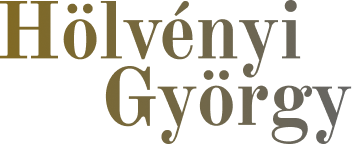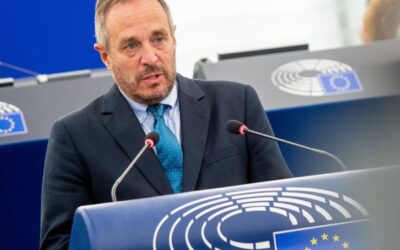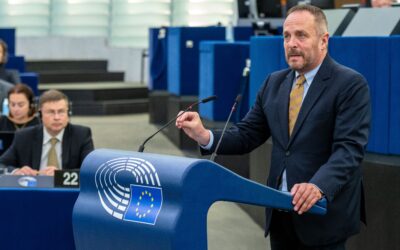The European Parliament has adopted MEP György Hölvényi’s report on education with a large majority on Wednesday in Strasbourg. The report calls for enhancing access to education of young people in developing countries and for enabling them to find decent life in their homeland instead of choosing migration. The report affects more than half a billion young Africans, the politician said.. The local churches take a major part in providing education, which the Union cannot ignore either. The decision adopted on Wednesday also draws attention to this The decision adopted on Wednesday also draws attention to this.
Africa is very close to Europe, yet EU bureaucrats are frequently distance themselves from reality. MEP György Hölvényi underlined that the now adopted document aims to return to reality. Migration is a real threat and the EU must start from this reality: migration must be stopped in the classroom.
Hölvényi’s report points out that the rapidly growing young population in Africa, together with the almost inexhaustible natural resources, constitutes enormous potential. However, in order to utilize this, quality education and vocational training is essential locally. The Brussels myth that migration is good must be dispelled. Young people leaving their homeland is harmful and makes Africa’s economic development impossible.
It is a serious step forward that the decision that has just been adopted by the Parliament recognizes the role of religious organizations in education and calls on the EU to cooperate with them. The Christian Democrat MEP pointed out that the Commission practically excludes the churches from development financing in the spirit of misinterpreted neutrality, even though they provide 40% of education and health care in Africa.
The report is also a success of the policy of Hungary aiming to tackle challenges locally instead of import them to Europe, the MEP said.
MEP György Hölvényi, EPP Group spokesperson on development cooperation has been treating the issue of education and vocational training as a matter of priority since the beginning of the current parliamentary term. As a summary of the work of the last five years, the Development Committee (DEVE) assigned him in early 2023 to prepare a report on how the European Union can do more to ensure that young people in Africa have access to quality education locally. The text adopted now is the result of the fact-finding work of the past years and the close relationship established with African partners.
Strasbourg, 13 December 2023



